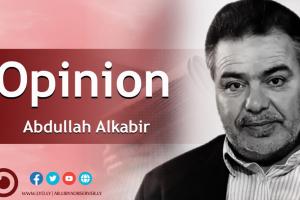By Abdullah Alkabir, a Libyan political writer and commentator
Is it election or extension of sabotage?

The High Council of State (HCS) has rebuffed the Presidential Council’s initiative for a tripartite meeting in Ghadames, without explaining the reasons behind such rejection. While the House of Representatives (HoR) and its speaker completely ignored the initiative. In order to avoid local and international indignation over such rejection, presidents of both HoR and HCS rushed to meet in Cairo, to communicate a swift message that might alleviate the pressure on them, purporting that they are pressing ahead with their quest for a way out of the crisis, by approving a constitutional basis for the elections, thereby absorbing some of the anger resulting from the rebuff of the Presidential Council’s initiative. Then, they came out with a statement and a press conference, in which they repeated the same rhetoric that has become familiar to every observer of the Libyan affair, and therefore they continue pursuing the same goal, which has become more or less a mirage.
The outcomes of their meeting and their statements did not win any support from any party or country relevant to the conflict. UNSMIL’s belated comment, and the American ambassador did not reflect on Aqila-Al-Mishri meeting outcome, except the part related to finalizing the constitutional rule and conduct of elections.
The room for maneuver for Aqila and Al-Mishri is now narrowing with the continued American and European pressure, and if the failure of the two houses continues and their procrastination persist, then resorting to alternative solution will be the only available option to end the political stalemate, and achieve the change through elections.
These alternatives are confined to the move of the Presidential Council with clear UN and international support, and since this step will involve the removal of the HoR as well as the HCS, there must be a US pressure on Haftar not to oppose the step, to deprive the HoR of Haftar’s support for its rejection, as well as pressure on the Egyptian government, being the regional supporter of Tobruk’s Parliament, or else to prepare for a political forum similar to the Tunis-Geneva ones. However, the main dilemma for this latter option will be the criteria for selecting the participating figures. As all parties to the conflict will be keen for the participation of their representatives, and even other parties outside the circles of power will seek to gain a foothold in the political forum that will bring them closer to winning a suitable position in the next stage.
In view of the angry reactions in the western part of Libya, the Head of the High Council of State, Khaled Al-Mishri, appeared on Libya Alahrar TV, to clarify some details of his recent position. His opinions were acceptable on several points, such as resorting to a popular referendum on candidacy of people with dual nationalities, but his justifications for rejecting the Presidential Council’s initiative were not convincing. He also revealed that he does not insistent on the option of overcoming the state of two governments, and forming a third unified government that would supervise the elections. He insisted that he had only discussed with Aqila the file of the constitutional rule. Al-Mishri also challenged the head of the Government of National Unity, Abdul Hamid Dbeibah, to face him on televised debate, accusing the latter of speaking out on all occasions, accusing him and Aqila of obstructing elections. Al-Mishri for his part accused Dbeibah of being ready to pay billions to abort elections.
If Dbeibah accepts the challenge and confronts Al-Mishri, there is no doubt this will be a major event, and it will disclose many hidden matters, but it will be more important when it takes place between two rival candidates, both of whom seek to win voters!
However, at the current state of affairs what is rather required from Al-Mishri is his speedy consensus with his rival and partner, Aqila Saleh, to finalize the constitutional document as he called it, and put the ball in Dbeibah's court, to see if he could obstruct the path towards elections, after overcoming the most difficult dilemma, which is the constitutional rule or ‘document’.
What are the expected scenarios in the coming days and weeks?
The UN envoy moves to hold separate meetings with all actors, to build on the recent understandings in order to finalize the constitutional basis, and to set dates for the electoral process, with international parties set to follow up and evaluate the outcome of this move.
Continued meetings between Aqila and Al-Mishri, and the preparations for the popular referendum on the candidacy of people with dual nationalities, without guarantees that Haftar will not obstruct this step, if he feels that the result will exclude him from participation. In such case, the state of affairs will remain in square one.
The closer Aqila and Al-Mishri are to the finalization of the constitutional document, the rapprochement will occur between the Presidential Council and the Government of National Unity on the one hand and Haftar’s camp on the other. This emergency alliance may result in the exclusion of the HoR and the HCS through presidential decrees, and the imposition of a new status quo backed by the dominant force on the ground, east and west.
The state of despair would reach its climax with UNSMIL and the international parties supporting the elections, prompting the former to prepare for a new political forum.
These scenarios, and others are not expected, to lead the country to elections, which mean a prolonged stalemate, and any scenario that allows the current entities and personalities to persist in the scene means nothing but a prolonged sabotage.
Disclaimer: The views and opinions expressed in this article are those of the writer, and do not necessarily reflect those of the Libya Observer



